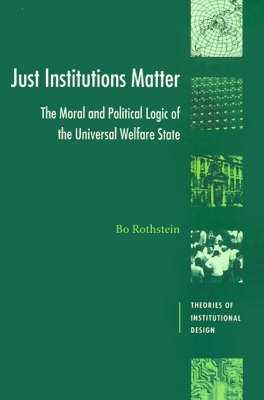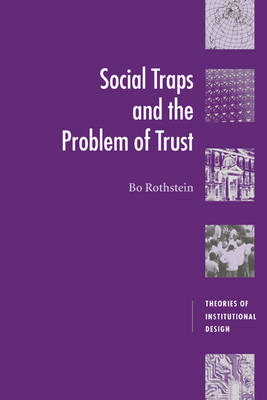Theories of Institutional Design
2 total works
In this book Bo Rothstein seeks to defend the universal welfare state against a number of important criticisms which it has faced in recent years. He combines genuine philosophical analysis of normative issues concerning what the state ought to do with empirical political scientific research in public policy examining what the state can do. Issues discussed include the relationship between welfare state and civil society, the privatization of social services, and changing values within society. His analysis centres around the importance of political institutions as both normative and empirical entities, and Rothstein argues that the choice of such institutions at certain formative moments in a country's history is what determines the political support for different types of social policy. He thus explains the great variation among contemporary welfare states in terms of differing moral and political logics which have been set in motion by the deliberate choices of political institutions. The book is an important contribution to both philosophical and political debates about the future of the welfare state.
A 'social trap' is a situation where individuals, groups or organisations are unable to cooperate owing to mutual distrust and lack of social capital, even where cooperation would benefit all. Examples include civil strife, pervasive corruption, ethnic discrimination, depletion of natural resources and misuse of social insurance systems. Much has been written attempting to explain the problem, but rather less material is available on how to escape it. In this book, Bo Rothstein explores how social capital and social trust are generated and what governments can do about it. He argues that it is the existence of universal and impartial political institutions together with public policies which enhance social and economic equality that creates social capital. By introducing the theory of collective memory into the discussion, Rothstein makes an empirical and theoretical claim for how universal institutions can be established.

